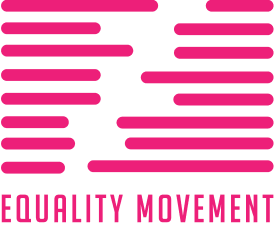“Equality Movement” offers a rapid saliva and Blood test on HIV infection.
VCT- voluntary consulting and testing involve pre-consultation, testing, and post-consultation.
You can also get condoms and lubricants.
What do you need to know before testing?
In order to receive free and anonymous HIV testing, you should visit the Equality Movement’s office, address Ia Kargareteli Str. 2 Before visiting contact us by phone (0322 47 97 48), or write to us on Facebook.
You will be tested for HIV in 10 minutes. We can also provide you with free condoms, lubricants, and PrEP. In the “Equality Movement,” you will receive pre and post-consultation that can help you get answers to questions related to HIV infection.
Keep in mind that HIV infection, as well as other viruses, has an incubation period. This means that a person can be infected with HIV but still test HIV-negative. This window period lasts three months.
What are the symptoms of HIV infection?
If you do not use routine services for HIV / AIDS diagnosis (e.g. you do not have a rapid test once in six months) and you are concerned about the symptoms of HIV infection, you should ask your doctor.
The symptoms of HIV infection are not very different from other infectious diseases (that is why routine inspection is recommended). The most common symptoms of HIV are:
- Enlarged lymph nodes (often painful)
- Flu-like syndrome (temperature)
If you do not know the cause of this condition, you may suspect you have HIV infection.
What should I do if I am thinking of or interested in my HIV status?
In such a case you can address us in the “Equality Movement” where you will be given a rapid test for free and you will learn your HIV status in twenty minutes’ time. We can also provide you with free condoms, lubricants, and PrEP. At the “Equality Movement,” you can also get the so-called pre and post-consults, which will help you receive answers to the questions you might have regarding HIV infection.
What can I do if I know that I’m HIV positive?
If you learn that you might be diagnosed with HIV (e.g. via a rapid test) we will refer you to the “Research center for the Infectious Pathology, AIDS and Clinical Immunology”, where you will be given so-called thorough testing and the accuracy of your diagnosis will be determined. After this, you will be assigned a doctor, who will provide the permanent consult and you will begin being treated.
Since, due to the stereotypes existing in our society towards AIDS and HIV infection, learning this diagnosis can be equal to experiencing a psychodrama for many individuals, the “Equality Movement” offers the service of a therapist, in the scope of which qualified psychologists will give psychotherapeutic consults.
What is HIV?
HIV (the human immunodeficiency virus) is a viral infection. After ending up in the human body, HIV infects the human immune cells and reproduces them in this way. After some time, this process causes the weakening of the human immune system. Once the immune system is weakened, the human body cannot protect itself from various diseases.
What is AIDS?
After the reproduction of the HIV infection cells causes the human immune system to be lowered below a certain point, different diseases emerge. This stage is referred to by medical professionals as AIDS (acquired immune deficiency syndrome). The word syndrome has been chosen because the human body left with practically no immune system usually becomes a target for several diseases at once.
How is HIV transmitted?
HIV can be transmitted to a human being through the following ways:
- Unprotected sexual contact
- Blood transfusion
- Injecting an infected needle or some other infected object
- Passed on from a mother to a child if during pregnancy the mother is infected and does not receive the proper treatment
HIV is not transmitted through the following ways
- Hugging an HIV-infected person
- Through airborne transmission (e.g. kissing on the lips)
- Protected sex
- A bite of an insect (e.g. mosquito bites)
How do we protect ourselves from HIV?
There are several ways to protect oneself from HIV:
- Protected sex (using a condom and a lubricant)
- PrEP (Pre Exposition prophylactic treatment)
- Permanent testing (recommended once every three months)
- Having the necessary information about the HIV/AIDS
How long does it take to know if I have been infected?
Like any other virus, HIV has an incubation period. This means, that in case of being infected with HIV, it might be impossible to detect it via simple (rapid) testing for up to three months. The medical term for this stage is a window period.
Is there a treatment for HIV infection?
Currently, HIV infection can be treated, but there is no full recovery. This means, that HIV infection is a manageable chronic disease. Modern medicine offers medication of different types (antiretroviral medication), which suppresses the virus to such a level that the virus is no longer visible in the blood of the HIV-positive person. The HIV-positive individual, which receives permanent treatment has the same quality of life as the HIV-negative person.
What kind of difficulties can emerge during receiving the treatment for HIV?
As HIV infection is a manageable chronic disease, HIV-positive individuals have to receive medication throughout their entire life. This process is usually followed by several complications. Often, when HIV-positive individuals start treatment, they are so scared by the side effects of the medication, that they refuse the treatment altogether. In this case, it should be noted that these side effects usually last for two weeks or a month at most from the moment of starting the treatment. Once the body gets used to the medication, the side effects fade away. The second problem encountered by HIV-positive individuals is psychological fear. Understanding that a person has to take some form of medication for the rest of their lives can be a bit scary. But it should be noted, that if a person manages to turn this process into a daily routine, the fear subsides.

 ვებ-გვერდი შექმნილია RFSU-ს ფინანსური მხარდაჭერით.
ვებ-გვერდი შექმნილია RFSU-ს ფინანსური მხარდაჭერით.

